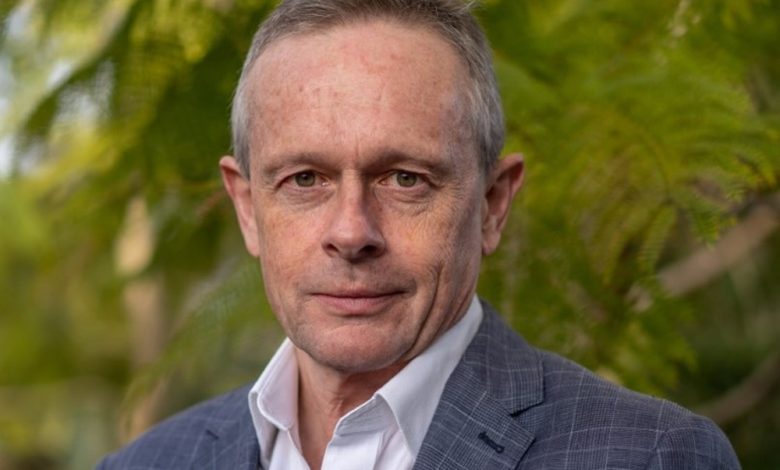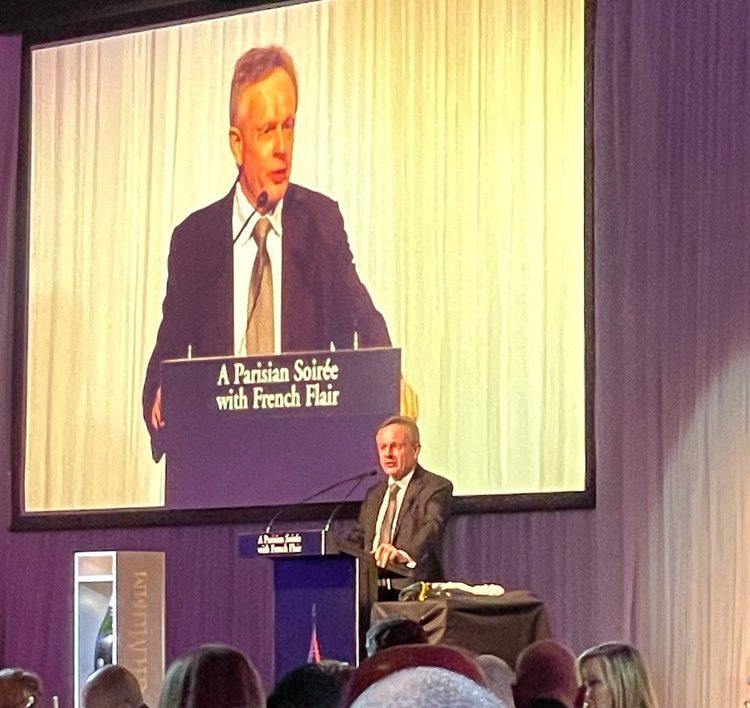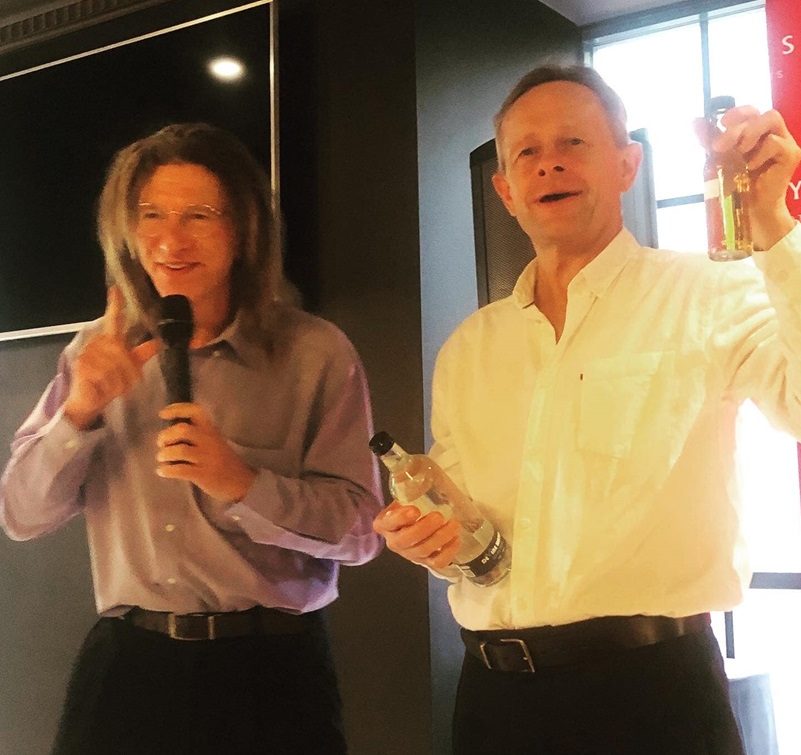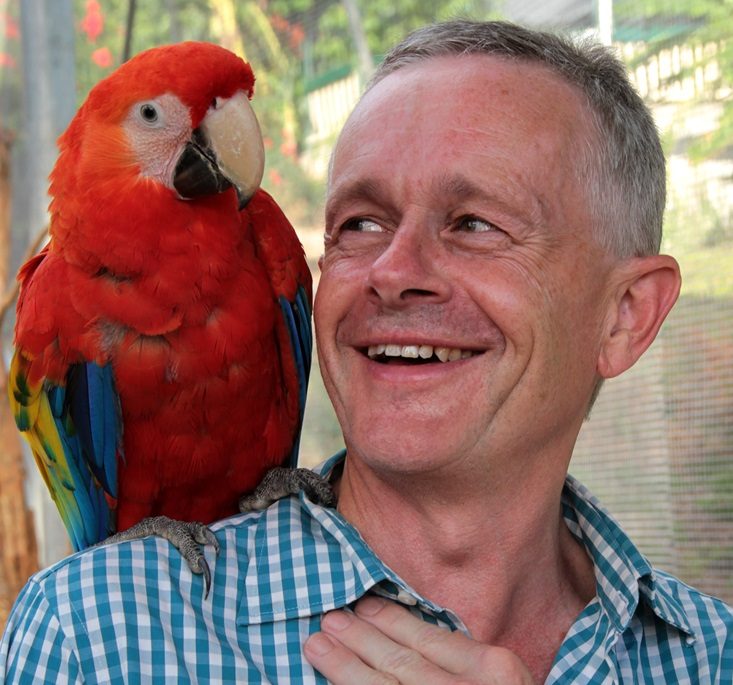
Maximising the hotel experience is the real ‘hook’
A conversation with Peter Hook: "Hotels are about people, not just real estate"
Peter Hook, a prominent figure in Australian communications and public relations, with a deep-rooted career spanning various fields, including journalism, government, public affairs, tourism, and hospitality, shares his insights on the evolving hotel industry with Grantlee Kieza.
Peter began his career as an ABC journalist and producer in the late 1970s. In 2013, he founded Hook Communications, offering a comprehensive suite of PR services to entities in the accommodation and tourism sectors. His impressive portfolio includes collaborations with esteemed clients such as Visit Sunshine Coast, Kakadu Tourism, Schwartz Family Company Hotels, and JLL.
Article originally published in Resort News – subscribe HERE
You started your career in broadcast journalism?
Yes, I began working for the ABC and later with the Macquarie Radio Network. I started in journalism working for ABC Current Affairs (AM, PM, etc) in 1978 and then became a producer at Radio 2BL (ABC Sydney) until 1983. I worked with some great broadcasters including Mike Jeffreys, Holger Brockman, and Jeff McMullen, who went on to have a long TV career with the show 60 Minutes.
Back in those days, 2BL operated out of a creaky old building in a run-down part of Kings Cross, a stark contrast to the smart Ultimo building near Darling Harbour that the ABC occupies today. Nevertheless, it was a period of great fun and enlightenment.

Then you made the move to Canberra, working for the Federal Government?
I worked for various government ministries, including Communications and Industry, Science and Technology. I was responsible for writing speeches for prominent figures like Michael Duffy, John Button, and Barry Jones, the TV quiz champion who later became a leading intellectual in Australian politics. They were all exceptional Labor ministers, driven by a genuine belief in improving the country. Barry was notably approachable and a true genius. Michael Duffy instigated significant changes, while John Button excelled at securing funding for his projects. It was a wonderful era, quite distinct from today’s name-calling politics.
Interestingly, despite their roots in the Labor Party, they implemented policies such as international competition, reduced tariffs, and the floating of the dollar, which deviated from traditional Labor politics. In particular, Bob Hawke and Paul Keating recognised these measures as the path forward for the country. It was a remarkable time to work in Canberra!
When did you first venture into the tourism industry?
It began in 1985 when I was recruited by Qantas as their General Manager of Public Affairs. One of the things I was responsible for, was overseeing the publication of books on the history of the airline by John Gunn, including the 75th-anniversary edition.
Then you transitioned into the hospitality sector?
Indeed, in 1988, I joined the then-largest hotel group in Australia – Southern Pacific Hotels (SPHC). SPHC operated renowned hotel brands like Parkroyal, Centra, and Travelodge. I assumed the role of General Manager, Public Affairs.
This period was particularly intriguing as the industry underwent significant changes. Despite facing challenges, the company received a boost from the work of Adrian Zecha, who had been constructing high-end hotels and resorts in Indonesia.
In 1995, I was recruited by Accor, a rising star in the hotel industry, to serve as their General Manager of Communications for the Asia Pacific network. I dedicated 18 years to the group before embarking on my own venture, Hook Communications, in 2013.

Your introduction to the industry coincided with a period of transformation in the Australian hotel industry, didn’t it?
Absolutely. The 1980s and 1990s revolutionised the industry, shaping it into a unique and distinctly local sector. Our geographical distance from Europe and America allowed us to adapt and evolve more effectively than many other countries.
Why didn’t Australia foresee the crisis resulting from the unrestricted growth of residential short-term accommodation?
I was a strong advocate for ‘appropriate’ short-term accommodation regulation when I worked for hotel industry bodies such as Tourism Accommodation Australia. The fact that so many destinations are now taking punitive action against residential short-term accommodation owners and operators suggests that authorities either couldn’t or didn’t want to see the consequences of ignoring the obvious.
Now we find ourselves in a situation where everyone suffers as authorities attempt to rectify an issue that should never have arisen.
What other changes in the hotel industry have you seen?
One of the greatest evolutions of hotels has been getting rid of these incredible cold marble lobbies, where guests actually annoyed staff because they got the marble dirty. Many hotels now have lobbies that are warm and inviting living spaces with comfortable furniture and artwork.
CitizenM hotels brought the whole ‘lifestyle hotel’ to the world. They turned lobbies into living rooms, adding comfortable settees and even fireplaces. This made guests feel like they were home, changing the world of hotels for the better.
I also love the move towards distinctive, authentic hotels that genuinely understand and share the local destination with their guests. But there is room for everything.
People love disparaging 3-star type hotels and resorts, but they serve a purpose. Not everyone can afford a $700-a-night room, so we need to encourage excellence at all levels of the market, and that’s why the innovations in the economy and mid-market sectors also need to be celebrated. While it is easy to publicise ‘palace’ type hotels, innovations in 3-star hotels and small resorts and accommodations are often more interesting.
At Accor, I was responsible for Asia Pacific, and we had these Ibis hotels in Jakarta which were very different from Ibis hotels in Australia, the UK, and France. These Ibis hotels had good swimming pools, sometimes two restaurants and very distinctive interior designs. The owners had taken ‘inspiration’ from Philippe Starck, a great designer who did a lot of New York hotels. And so, you had this lovely art deco design in Ibis hotels. With a bit of ingenuity, you can turn what were once ‘cookie-cutter’ hotels into something very interesting and inviting.
I hear you’re a big fan of bed toppers?
It’s one of the greatest innovations in the industry. I never forget sleeping on my first Sofitel “My Bed” in the early to mid-2000s. It was such a game-changer that I had to buy one for my home, and wow, what a difference a topper can make. While ‘dream’ beds were once the exclusive realm of 5-star hotels, the trickle-down effect means that even 3-star rooms upped their game.
And that speaks to what I said earlier. We can always talk about the facilities in 5-star hotels, but let’s also focus on 3-star type hotels and resorts and celebrate their changes.
What about current trends – are hotels doing enough for the environment?
Our industry needs to get its act together and be genuine with the environmental debate. Hotels are going to be forced to take ESG (Environmental, Social and Governance) seriously from July 1, because the Federal Government is stipulating that contracts with hotels will need to consider their ESG practices and performance. Hotels need to invest in infrastructure that delivers serious environmental benefits.
Merely adding a beehive and herb garden on the roof doesn’t turn a hotel green.

You’ve played a significant role in advancing Indigenous tourism, haven’t you?
At Accor we launched the Accor Indigenous Program back in 2001. Simon McGrath, the former CEO, was a great promoter of that, lifting Indigenous people to general manager status. I was recently involved in the launch of the Novotel & Mercure Darwin Airport Resort, the first airport resort in Australia. The Airport Development Group (ADG) has established an Indigenous training academy there. I’m also involved in Kakadu tourism, and I see such positive results from it, giving Indigenous people meaningful, sustainable jobs. That’s how you close the gap in Australia and create long-term change. It’s been a highlight of my career, and I love seeing progress in that area.
I have been very fortunate to work with companies that have taken Indigenous tourism development seriously – Accor, Kakadu Tourism, and most recently, the Darwin Airport Resort.
How have communication and PR skills in the hotel industry evolved during your career?
Nowadays, hotel guests don’t want to be just a spectator at a hotel. They want to be involved. Over recent years, we’ve observed a shift, where successful hotels go beyond superficial acknowledgment of their surroundings; they deeply engage with their destinations.
Hotels offer a plethora of stories, from basic to elaborate. However, at times, communicators, GMs, or owners choose to merely promote the obvious.
During my tenure publicising the Tank Stream Hotel in Sydney, we crafted a self-guided walking tour that allowed guests to explore Sydney by tracing the path of the former Tank Stream, which served as Sydney’s inaugural freshwater supply upon the arrival of the First Fleet. Establishing such a connection gives the hotel a sense of place and historical attachment.
Travellers are different today. They want a story. They want to experience more than the location of the hotel where they are staying.
Finally, what’s the best advice you’ve received in the accommodation industry?
Les Rowswell, who was a great accommodation stalwart for Travelodge and then SPHC, insisted that hotels should not be called “properties” – he said hotels are about people, not just real estate, and I’ve always remembered that.
The new summer print edition of AccomNews is available now. Read it HERE
Grantlee Kieza OAM has won three Queensland Media Awards, two Australian Sports Commission Awards and has been a finalist for the Walkley and News Awards and for the Harry Gordon Award for Australian sports journalist of the year. In 2019 he received the Medal of the Order of Australia for his writing. You can find more of his work in our AccomNews & Resort News print magazines.
He has written 22 acclaimed books, including bestsellers Hudson Fysh, The Kelly Hunters, Lawson, Banks, Macquarie, Banjo, Mrs Kelly, Monash, Sons of the Southern Cross and Bert Hinkler.






